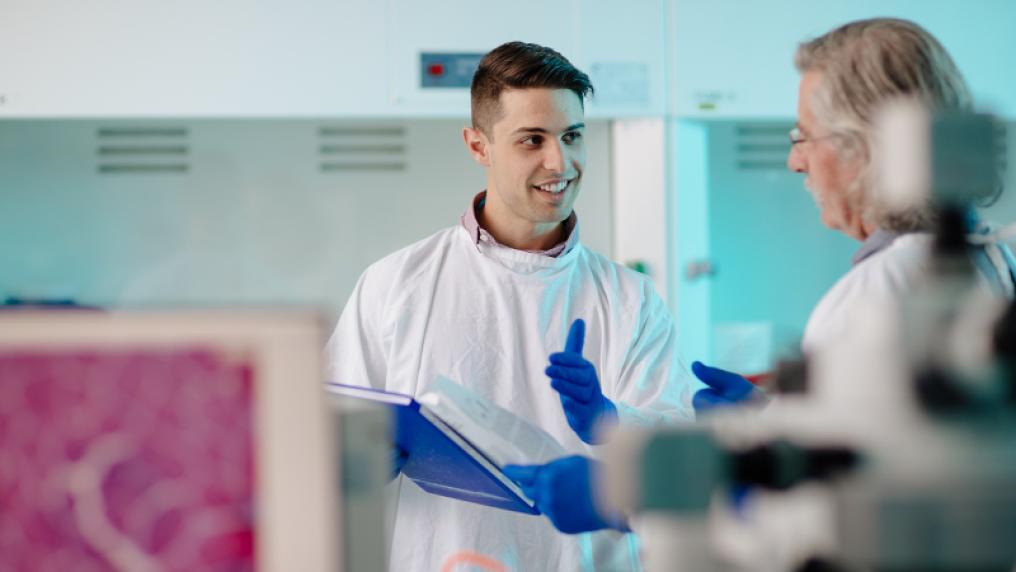A Bachelor of Biomedical Science is an undergraduate program designed to provide students with a comprehensive understanding of the biological and physiological principles that underpin human health and disease. This degree lays the groundwork for careers in healthcare, research, and related scientific fields by equipping students with essential knowledge and practical skills. Beyond academic learning, the program cultivates critical thinking, analytical abilities, and problem-solving competencies that are vital for success in modern health sciences.
Core Principles of Biomedical Science
The foundation of a biomedical science degree lies in understanding the structure and function of the human body at both cellular and systemic levels. Students explore anatomy, physiology, biochemistry, and molecular biology to gain a detailed appreciation of how tissues, organs, and systems operate. These subjects provide a framework for interpreting normal biological processes as well as the mechanisms underlying disease. A solid grasp of these principles enables students to analyze scientific data, design experiments, and understand the rationale behind clinical interventions.
Laboratory Skills and Practical Experience
Hands-on laboratory training is a central component of biomedical science education. Students learn essential laboratory techniques such as microscopy, molecular assays, histology, and biochemical analysis. Practical experience allows students to apply theoretical knowledge in real-world settings, fostering technical proficiency and precision. Laboratory work also emphasizes experimental design, data collection, and statistical analysis, helping students develop critical skills for research and clinical applications. The combination of theory and practice ensures that graduates are well-prepared to contribute effectively to healthcare or research environments.
Understanding Disease Mechanisms
Biomedical science programs place a strong emphasis on pathophysiology, the study of disease processes. Students investigate how infections, genetic mutations, metabolic disorders, and environmental factors disrupt normal biological function. Courses often cover immunology, microbiology, pharmacology, and pathology, providing insight into how diseases develop and progress. Understanding these mechanisms equips students to interpret clinical findings, evaluate potential therapies, and contribute to evidence-based healthcare solutions. By linking molecular and cellular processes to clinical outcomes, students gain a holistic view of human health.
Research Methodologies and Critical Analysis
A Bachelor of Biomedical Science encourages the development of strong research skills. Students learn how to formulate research questions, design experiments, and critically analyze scientific literature. Training in statistical methods and data interpretation enhances their ability to evaluate findings and draw valid conclusions. Research experience not only strengthens technical competence but also fosters independent thinking and problem-solving. Graduates are thus prepared to engage in biomedical research, contribute to scientific publications, or pursue advanced studies in health sciences.
Integration of Technology in Health Sciences
Modern biomedical science relies heavily on technology to advance knowledge and clinical practice. Students gain exposure to bioinformatics, imaging techniques, and laboratory information systems, which are increasingly important in research and healthcare settings. Proficiency in technological tools enables students to analyze complex datasets, model biological processes, and explore innovative diagnostic and therapeutic approaches. This technological literacy ensures that graduates can adapt to evolving scientific landscapes and contribute to the advancement of healthcare solutions.
Interdisciplinary Knowledge and Collaboration
Biomedical science is inherently interdisciplinary, integrating concepts from biology, chemistry, physics, and computer science. Students learn to synthesize information from multiple fields to solve complex health problems. Collaborative projects and team-based learning cultivate communication skills, project management abilities, and the capacity to work effectively in multidisciplinary teams. These experiences mirror real-world healthcare and research environments, where collaboration across specialties is essential for successful outcomes.
Ethical and Professional Foundations
A comprehensive biomedical science program emphasizes ethical considerations in research and healthcare. Students explore principles such as informed consent, patient confidentiality, and responsible conduct in laboratory settings. Understanding ethical frameworks prepares graduates to make sound decisions, navigate professional responsibilities, and contribute to research and clinical practices that prioritize integrity and safety. This foundation is critical for maintaining trust in healthcare and scientific communities.
Preparation for Advanced Study and Careers
A Bachelor of Biomedical Science provides a versatile foundation for a range of career pathways. Graduates may pursue roles in clinical laboratories, pharmaceutical research, biotechnology, or public health. The degree also serves as preparation for advanced studies, including medical, dental, or graduate-level biomedical programs. By mastering core concepts and developing practical skills, students are well-equipped to enter professional training programs or specialized fields that require in-depth scientific knowledge.
Health Education and Community Impact
Graduates of biomedical science programs are uniquely positioned to contribute to health education initiatives. Understanding the biological basis of disease and the impact of lifestyle and environmental factors allows them to design educational materials, support preventive healthcare strategies, and engage with communities to promote well-being. By translating scientific knowledge into actionable health information, biomedical scientists play a role in improving public health literacy and encouraging informed health decisions.
Contribution to Research and Innovation
Biomedical science graduates also contribute to innovation in healthcare through research. By studying molecular pathways, disease mechanisms, and therapeutic targets, they help advance the development of new diagnostics, treatments, and technologies. Training in experimental design and critical evaluation ensures that research is conducted rigorously and generates reliable, actionable insights. These contributions are fundamental to the progression of medical science and the continual improvement of patient care.
Integration With Clinical Practice
While biomedical science is rooted in research, its principles are directly applicable to clinical practice. Understanding cellular processes, pharmacology, and pathology enables graduates to collaborate effectively with healthcare professionals, support diagnostic processes, and contribute to patient management strategies. This integration bridges the gap between laboratory research and real-world healthcare, reinforcing the importance of evidence-based approaches in improving health outcomes.
Global Perspectives and Emerging Trends
Biomedical science education also addresses global health challenges and emerging trends. Students examine infectious disease outbreaks, chronic disease prevalence, and innovative therapeutic approaches from a worldwide perspective. Exposure to international research findings, public health initiatives, and emerging technologies ensures that graduates are prepared to operate in a dynamic and interconnected healthcare environment. Awareness of global trends encourages adaptability and fosters a broader understanding of how biomedical science can impact populations beyond local contexts.
The Role of Institutions in Advancing Biomedical Knowledge
Institutions that offer biomedical science programs play a pivotal role in advancing health sciences through education, research, and clinical engagement. UNT Health Fort Worth exemplifies this integration by combining health education, research, and health care to create a comprehensive environment for learning and innovation. By fostering collaboration between students, faculty, and healthcare professionals, such institutions ensure that graduates are well-prepared to contribute meaningfully to scientific discovery, healthcare delivery, and public health initiatives.
Building Critical Thinking and Problem-Solving Skills
A significant outcome of a biomedical science degree is the development of critical thinking and problem-solving skills. Students learn to evaluate experimental data, interpret scientific literature, and design research projects that address complex biological questions. These skills are not only essential for laboratory work but also transferable to clinical decision-making, healthcare management, and policy development. The ability to analyze information systematically and propose evidence-based solutions is a hallmark of biomedical science graduates.
Conclusion
A Bachelor of Biomedical Science provides a comprehensive foundation in health sciences, combining theoretical knowledge, practical laboratory skills, and research experience. Students develop a deep understanding of human biology, disease mechanisms, and therapeutic principles while gaining proficiency in technological tools, analytical methods, and ethical considerations. The degree prepares graduates for diverse career paths, from clinical laboratories and research to public health and advanced professional studies. Through the integration of education, research, and health care, programs like UNT Health demonstrate how biomedical science fosters the development of skilled professionals who contribute to scientific discovery, evidence-based practice, and improved health outcomes. By equipping students with the knowledge, skills, and critical thinking necessary to navigate the complexities of modern healthcare, a Bachelor of Biomedical Science serves as a launching pad for lifelong contributions to health sciences and human well-being.

